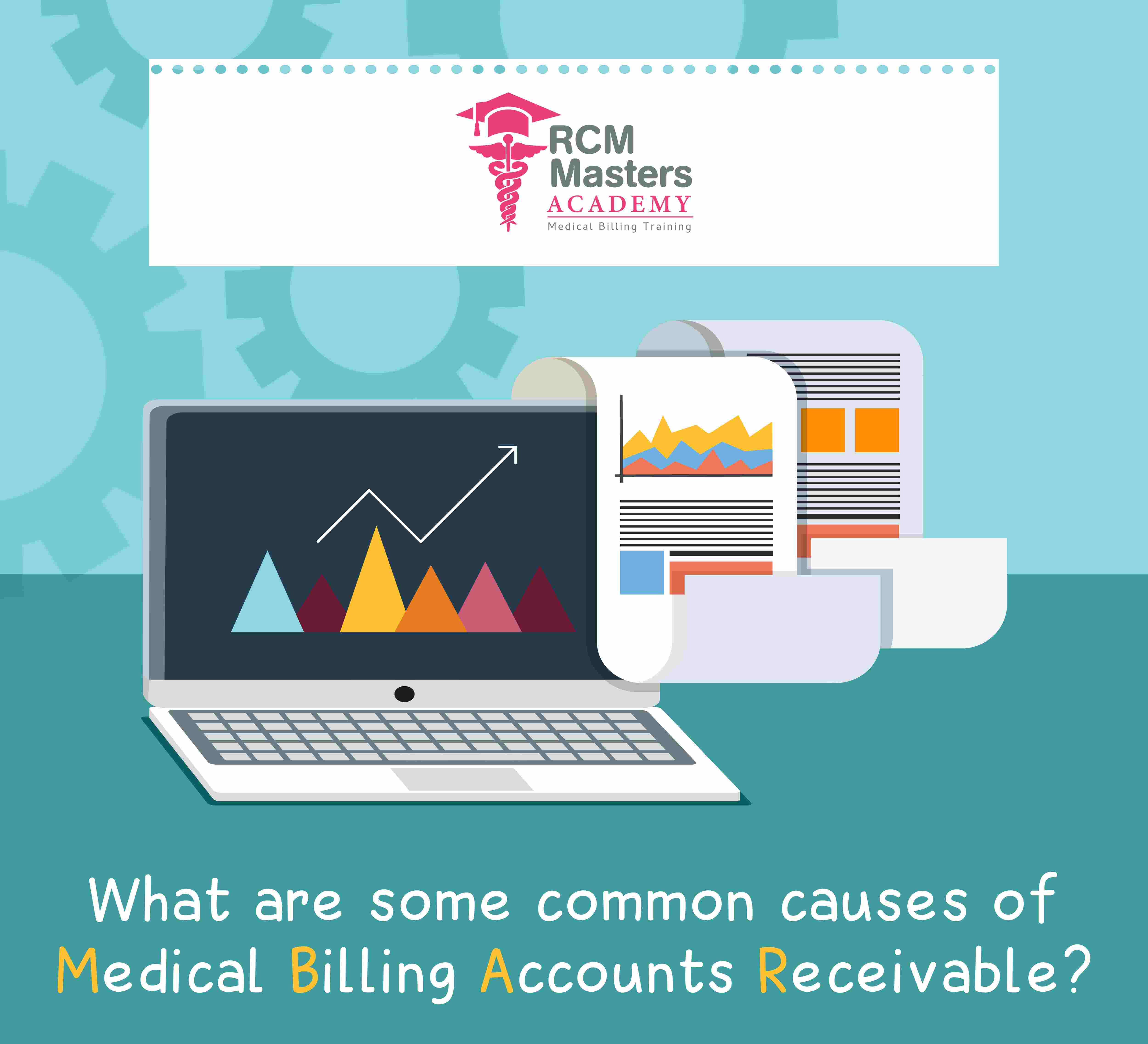 info@rcmmastersacademy.com
info@rcmmastersacademy.com

Medical billing is a critical aspect of the healthcare industry that involves the processing and submission of medical claims to insurance companies, government programs, and patients. One of the most significant challenges that healthcare providers face is managing their accounts receivable, which refers to the outstanding payments owed to them by their patients or insurance companies. We will discuss some common causes of medical billing accounts receivable.
1. Coding errors: One of the most common causes of medical billing accounts receivable is coding errors. Medical codes are used to identify the diagnosis, treatment, and services provided to a patient. If there are errors in the coding, the claim can be rejected or denied, leading to delayed payments or non-payment. It is important for healthcare providers to ensure that their billing and coding practices are accurate and up-to-date.
2. Insurance coverage issues: Another cause of medical billing accounts receivable is insurance coverage issues. Sometimes, insurance companies may deny a claim due to a lack of coverage or pre-authorization. In other cases, the insurance company may require additional documentation or information before processing the claim. Healthcare providers should ensure that they have a thorough understanding of their patients' insurance coverage and pre-authorization requirements to avoid these issues.
3. Unpaid patient balances: Patients may also be responsible for paying a portion of their healthcare costs, either through co-payments, deductibles, or out-of-pocket expenses. When patients do not pay their portion of the bill, it can result in outstanding accounts receivable. Healthcare providers should have a clear and transparent billing process in place to ensure that patients understand their financial responsibility and are able to pay their bills in a timely manner.
4. Lack of follow-up on denied claims: Sometimes, claims may be denied or rejected by insurance companies. If healthcare providers do not follow up on these claims, it can result in outstanding accounts receivable. It is important for healthcare providers to have a process in place for following up on denied claims and appealing them if necessary.
5. Inefficient billing processes: Finally, inefficient billing processes can also contribute to medical billing accounts receivable. Healthcare providers should have streamlined and efficient billing processes in place to ensure that claims are submitted accurately and in a timely manner. This can include the use of electronic medical records, automated billing software, and regular staff training on billing and coding practices.
In conclusion, medical billing accounts receivable can be caused by a variety of factors, including coding errors, insurance coverage issues, unpaid patient balances, lack of follow-up on denied claims, and inefficient billing processes. Healthcare providers should take steps to address these issues and ensure that their billing practices are accurate, efficient, and transparent. By doing so, they can reduce their accounts receivable and improve their cash flow, which can ultimately lead to better patient care and outcomes.
You can enroll for our Online Medical Billing Training here: